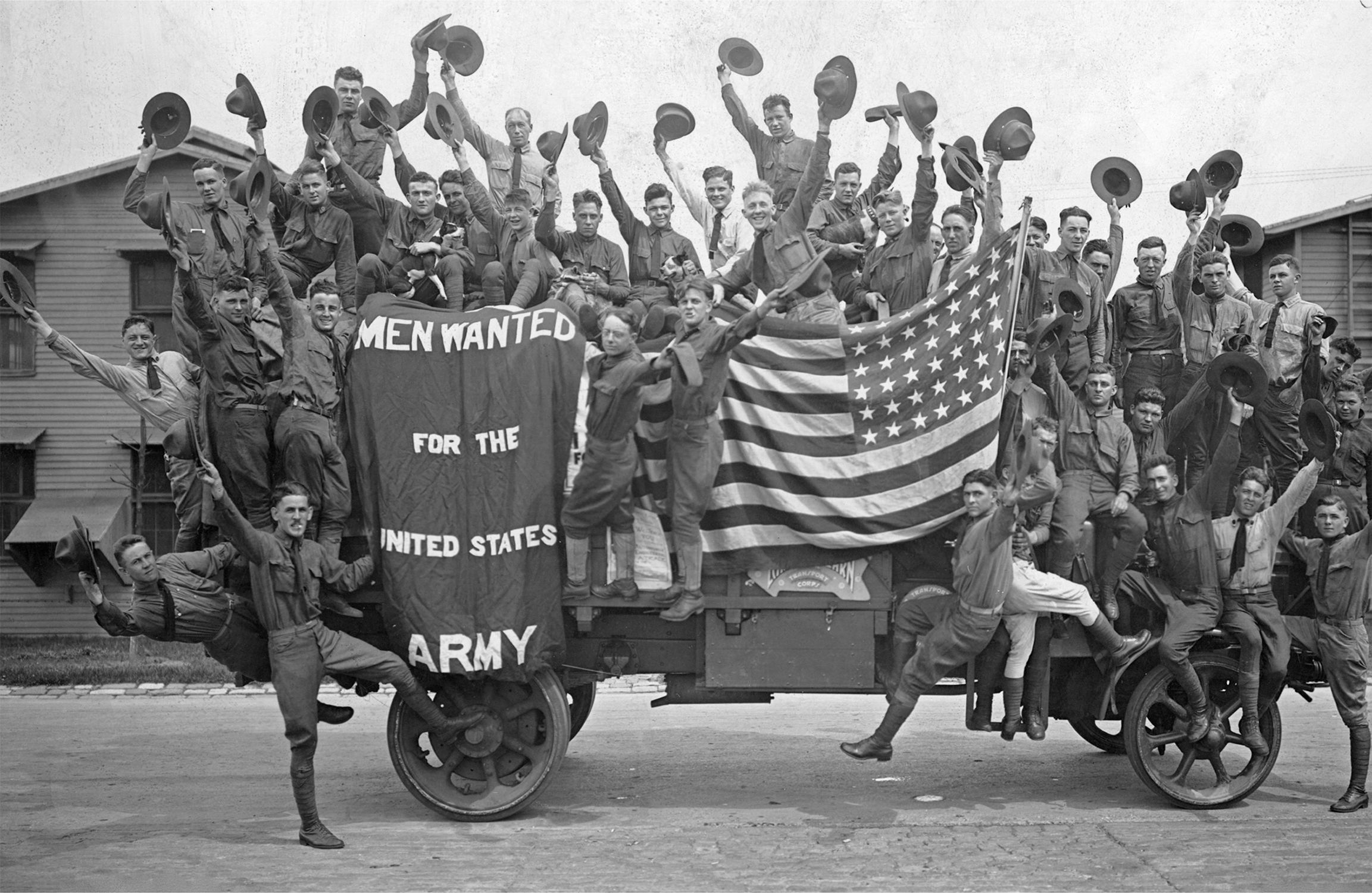The American Promise:
Printed Page 620
The American Promise Value
Edition: Printed Page 586
The Call to Arms
When America entered the war, Britain and France were nearly exhausted after almost three years of conflict. Millions of soldiers had perished; food and morale were dangerously low. Another Allied power, Russia, was in turmoil. In March 1917, a revolution had forced Czar Nicholas II to abdicate, and eight months later, in a separate peace with Germany, the Bolshevik revolutionary government withdrew Russia from the war. Peace with Russia allowed Germany to withdraw hundreds of thousands of its soldiers from the eastern front and to deploy them against the Allies on the western front in France.
On May 18, 1917, Wilson signed a sweeping Selective Service Act, authorizing a draft of all young men into the armed forces. Conscription transformed a tiny volunteer armed force of 80,000 men into a vast army and navy. Draft boards eventually inducted 2.8 million men into the armed services, in addition to the 2 million, including George Browne, who volunteered.
Among the 4.8 million men under arms, 370,000 were black Americans. Although African Americans remained understandably skeptical about President Wilson’s war for democracy, most followed W. E. B. Du Bois’s advice to “close ranks” and to temporarily “forget our special grievances” until the nation had won the war. During training, black recruits suffered the same prejudices that they encountered in civilian life. Rigidly segregated, they faced abuse and miserable conditions, and they usually shouldered shovels rather than rifles.

Training camps sought to transform raw white recruits into fighting men. Progressives in the government were also determined that the camps turn out soldiers with the highest moral and civic values. To provide recruits with “invisible armor,” YMCA workers and veterans of the settlement house and playground movements led them in games, singing, and college extension courses. The army asked soldiers to stop thinking about sex, explaining that a “man who is thinking below the belt is not efficient.” Wilson’s choice to command the army on the battlefields of France, Major General John “Black Jack” Pershing, was as morally upright as he was militarily uncompromising. Described by one observer as “lean, clean, keen,” he gave progressives perfect confidence.